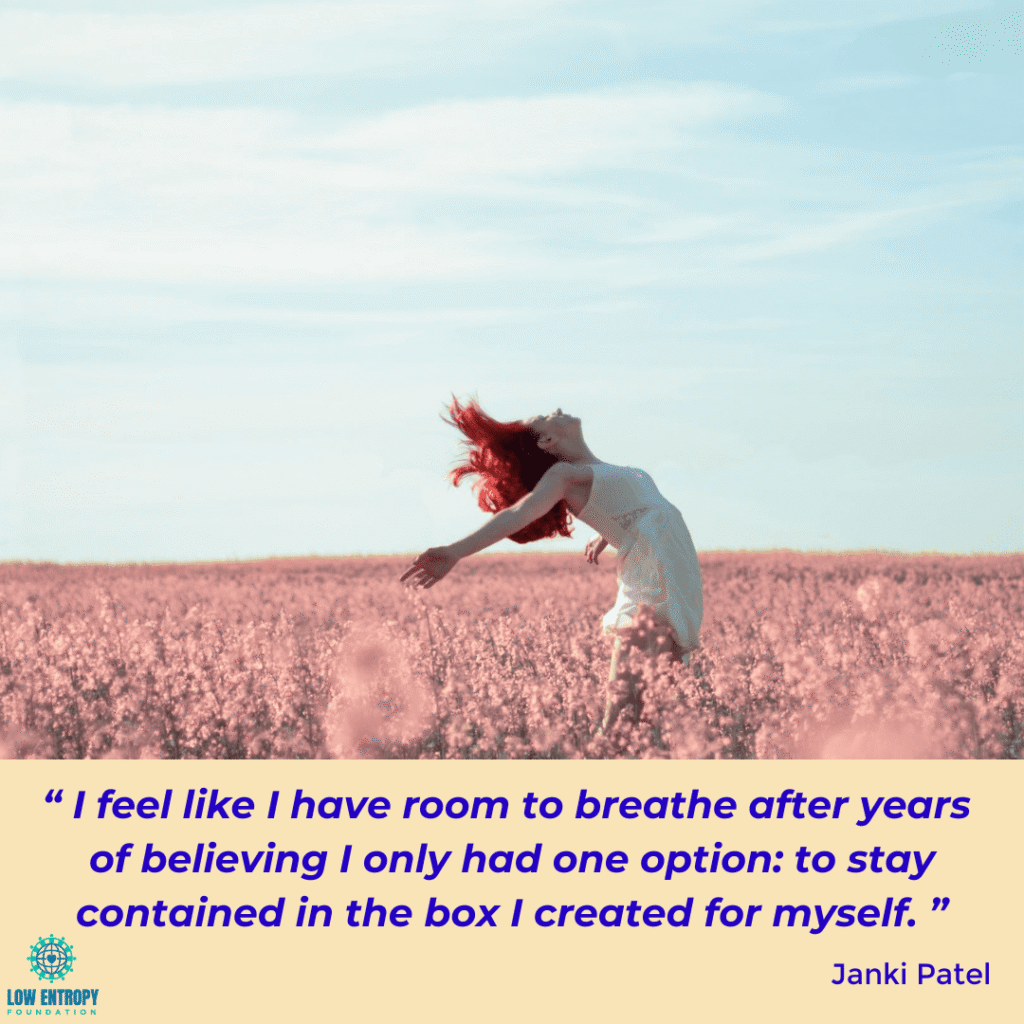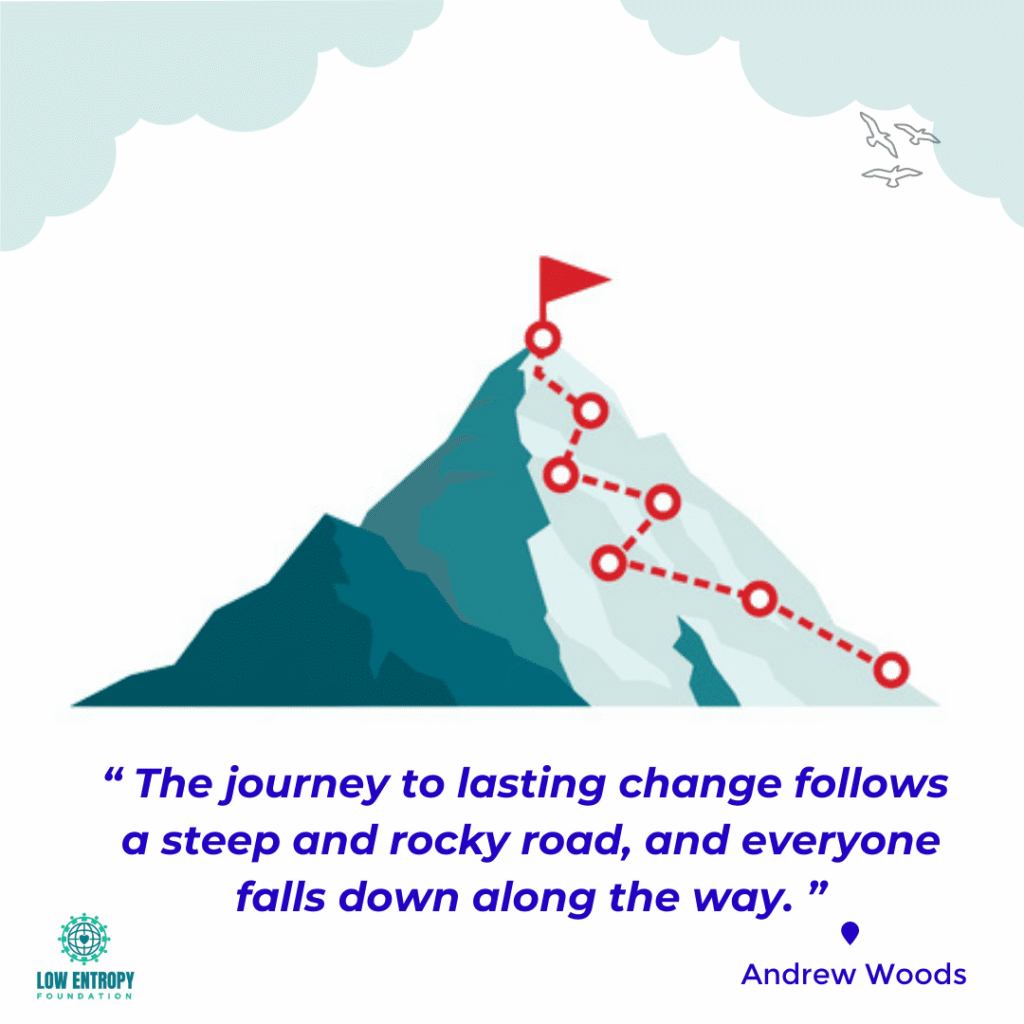The Career Box

Sometimes convincing yourself to stop holding you back can be more difficult than overcoming external obstacles. After making a big career commitment at a young age, Low Entropy Volunteer Writer Janki Patel was able to look back and realize that it’s okay to make decisions that are right for you now, regardless of what you […]
There and Back Again: On the Road to Change

Andrew Woods, Low Entropy Volunteer Writer Please note that this article contains brief references to substance use. “Why do you go away? So that you can come back. So that you can see the place you came from with new eyes and extra colors. And the people there see you differently, too. Coming […]
Alone This Time

As the matriarch and primary caregiver in her troubled family, Low Entropy Volunteer Writer Kathy Woudzia had her fill of responsibilities and challenges. These roles became her identity, and she was good at them. But what happens to a person when all that was familiar disappears, and they’re left to pick up the pieces left […]
